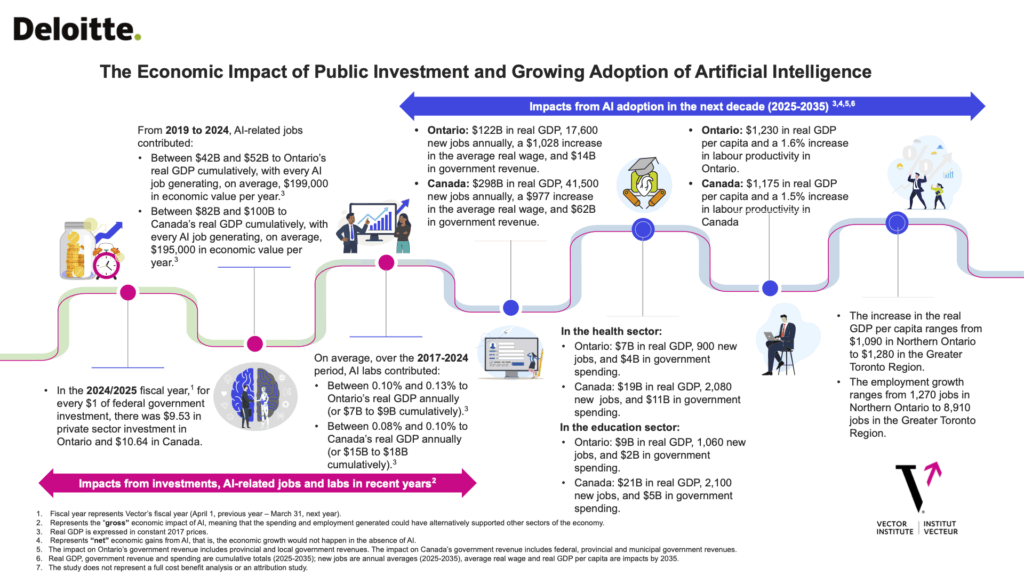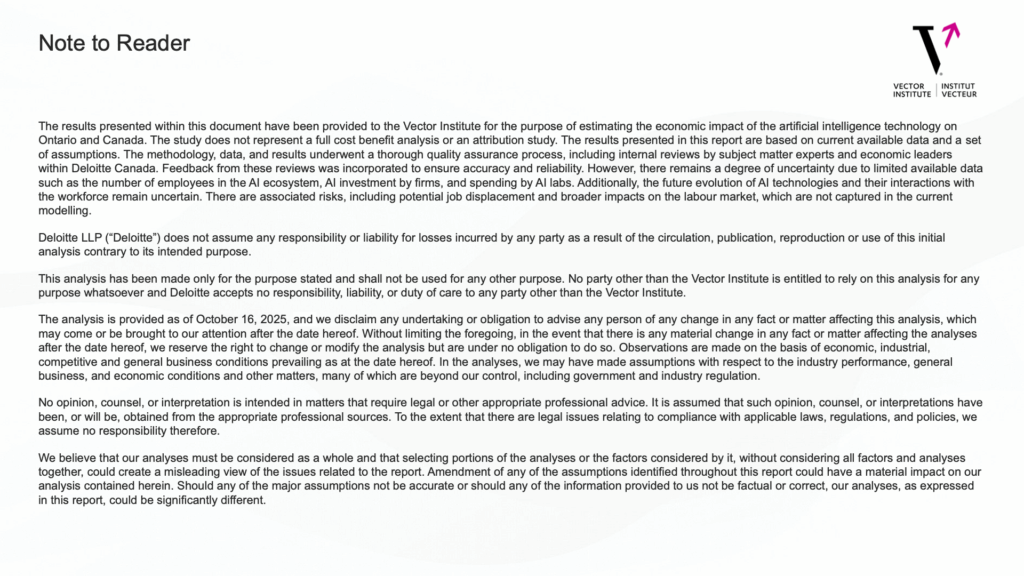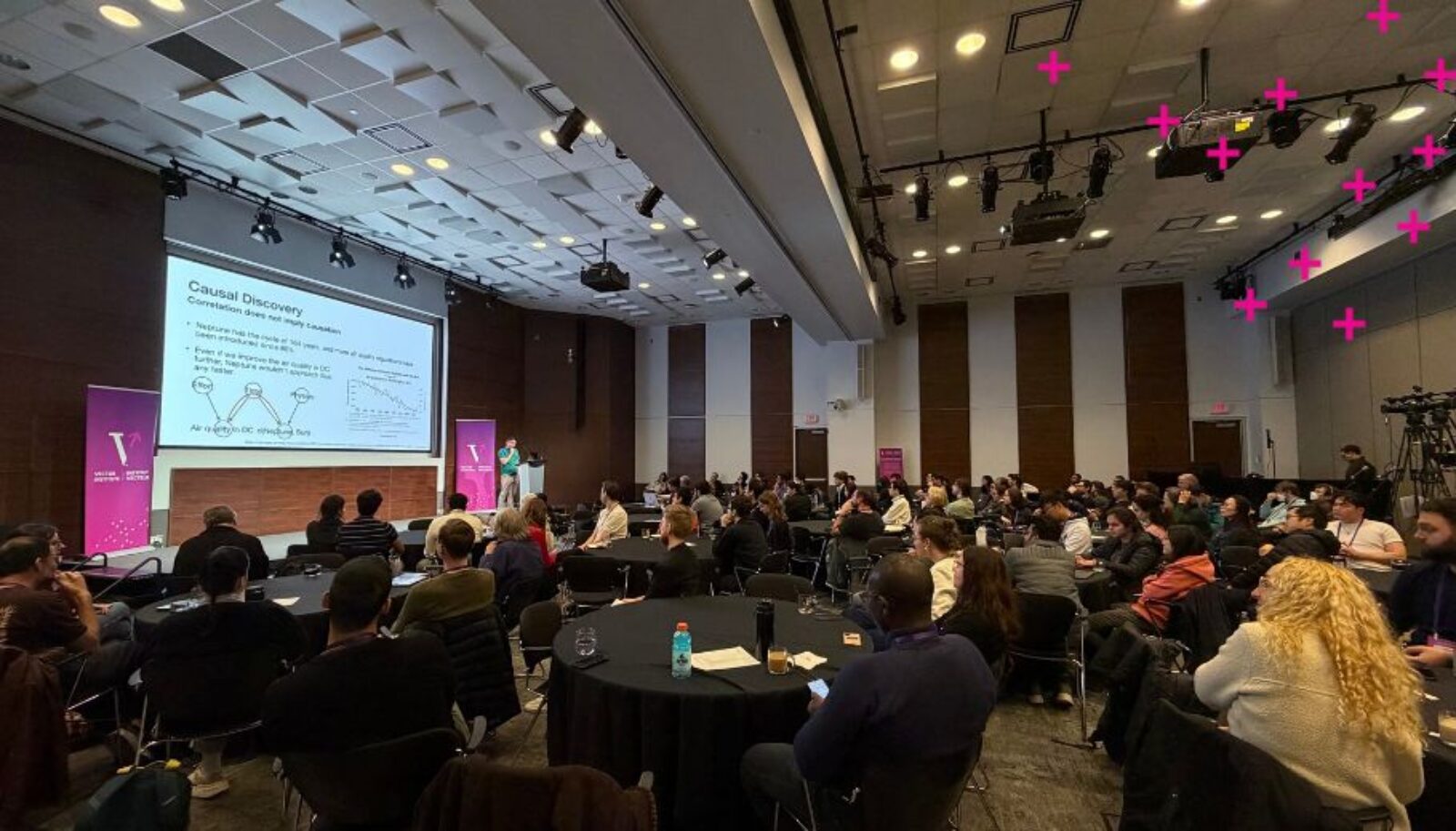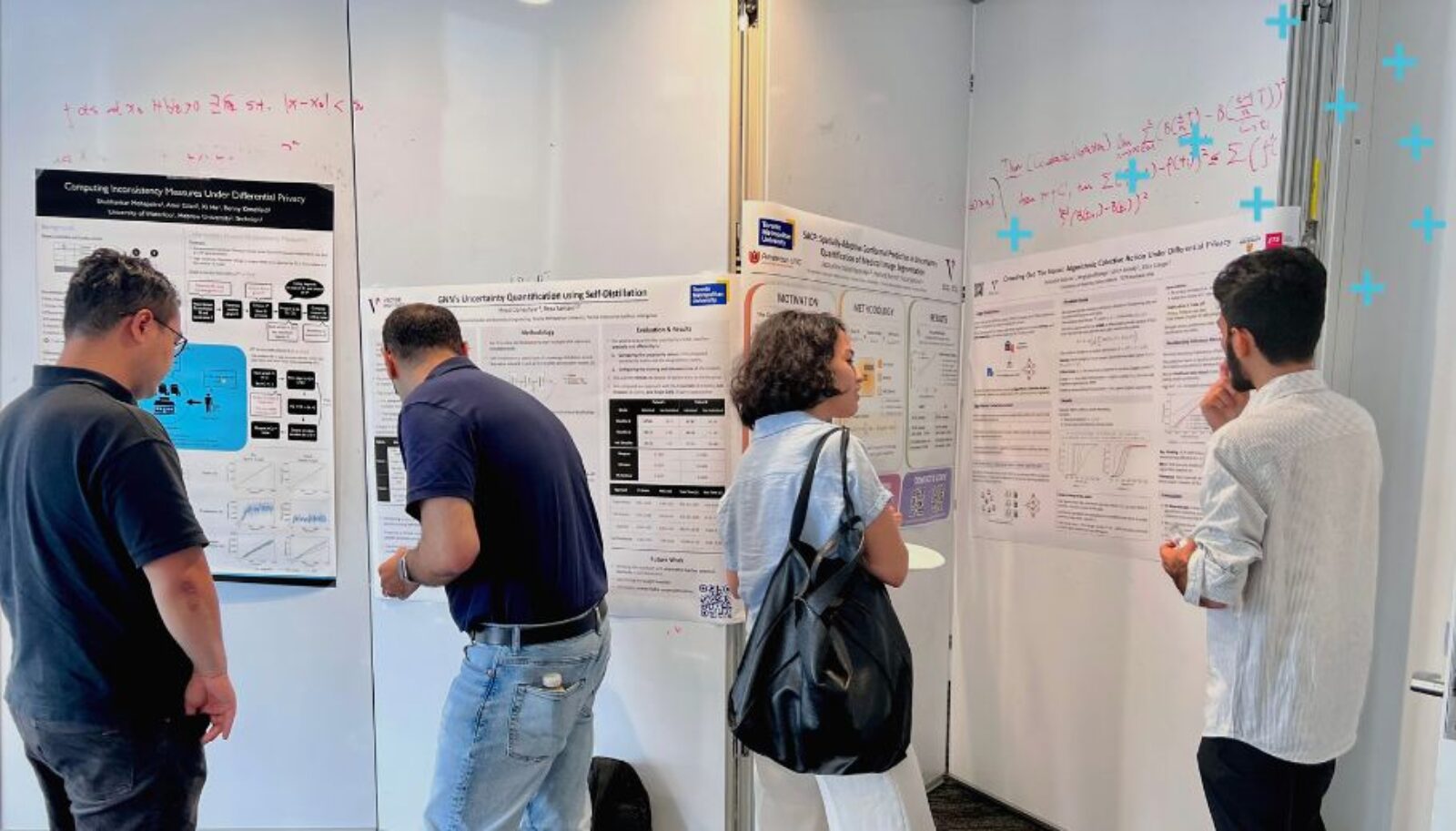New study reveals AI’s $100B economic impact across Canada, with Ontario leading the charge
November 25, 2025
November 25, 2025
TORONTO, [November 25, 2025] – Ontario is the engine of Canada’s artificial intelligence (AI) economy. AI-related jobs here in the province contributed between $42 billion and $52 billion over the last five years—nearly half of the estimated $82 billion to $100 billion contributed by AI-related jobs nationally, according to new research from Deloitte Canada commissioned by the Vector Institute. Future adoption of AI is poised to generate an additional $122 billion in cumulative real GDP in Ontario by 2035, and Canada as a whole is projected to achieve $298 billion in AI-driven economic growth.
Ontario’s AI ecosystem has demonstrated significant growth; the number of companies investing in AI has increased by 149% since 2019. This growth has created over 17,000 new AI-related jobs in the past year alone, bringing total AI-related employment to 39,327 positions.
“Eight years ago, Vector set out to help build an AI ecosystem that could compete globally. These results prove that vision is now reality. Ontario has become the AI capital that drives Canada’s success, as Vector continues to bridge the gap between world-class research and the companies that turn AI advancements into economic impact. The foundation is built—now it is time to scale,” said Glenda Crisp, President and CEO, Vector Institute.
Ontario’s performance: Between 2019 and 2024, AI-related employment contributed between $42 and $52 billion to Ontario’s real GDP cumulatively, with every AI job generating an average of $199,000 in economic value annually.
Looking ahead to 2025-2035, AI adoption is projected to:
Canada’s national impact: Across Canada, AI-related jobs contributed between $82 and $100 billion to the national economy between 2019-2024 cumulatively, generating an average of $195,000 in economic value per job annually.
Canada’s projected 2025-2035 AI-led growth includes:
“The impact of AI is already apparent; we’re seeing this firsthand through the establishment of numerous AI labs and the economic impact of AI-related jobs. Our analysis shows that continued adoption of AI across the Canadian economy has the potential to drive significant economic growth, enhance labour productivity, and generate net new jobs—growth that would not be achievable without the integration of AI technologies,” said Dawn Desjardins, Chief Economist, Deloitte Canada.


Click image to enlarge. Click here for text only version
The research demonstrates remarkable investment leverage at both the provincial and federal levels.
The report also examines regional impacts of AI adoption, pointing to significant transformation:
The economic benefits of AI adoption between 2025 and 2035 extend across all regions of Ontario:
“The benefits of AI aren’t confined to downtown Toronto,” said Cameron Schuler, Chief Commercialization Officer and Vice President, Industry Innovation, Vector Institute. “Such benefits can help apply machine learning to optimize supply chains in Southwestern manufacturing, improve resource management in Northern Ontario, and create efficiencies that strengthen businesses in every region. These projections—from over 3,400 new jobs annually in the Southwest to nearly 1,300 in the North—show a province-wide transformation in progress.”
The study employed quantitative methods and computable general equilibrium (CGE) modelling, to estimate historical and projected economic impacts. The analysis drew on data from Statistics Canada, government investment records, and industry databases, with future projections based on peer-reviewed research on AI productivity gains and adoption rates.
Historical impacts represent the “gross economic footprint” of AI-related investments and employment, while future projections model “net” economic gains from productivity improvements that would not occur without AI adoption.
About the Vector Institute: The Vector Institute is an independent, not-for-profit corporation dedicated to advancing artificial intelligence, excelling in machine learning and deep learning. Vector’s vision is to drive excellence and leadership in Canada’s knowledge, creation, and use of AI to foster economic growth and improve the lives of Canadians. The Vector Institute is funded by the Government of Ontario, the Government of Canada and industry sponsors across Canada.
Media Contacts: Vector Institute: media@vectorinstitute.ai


